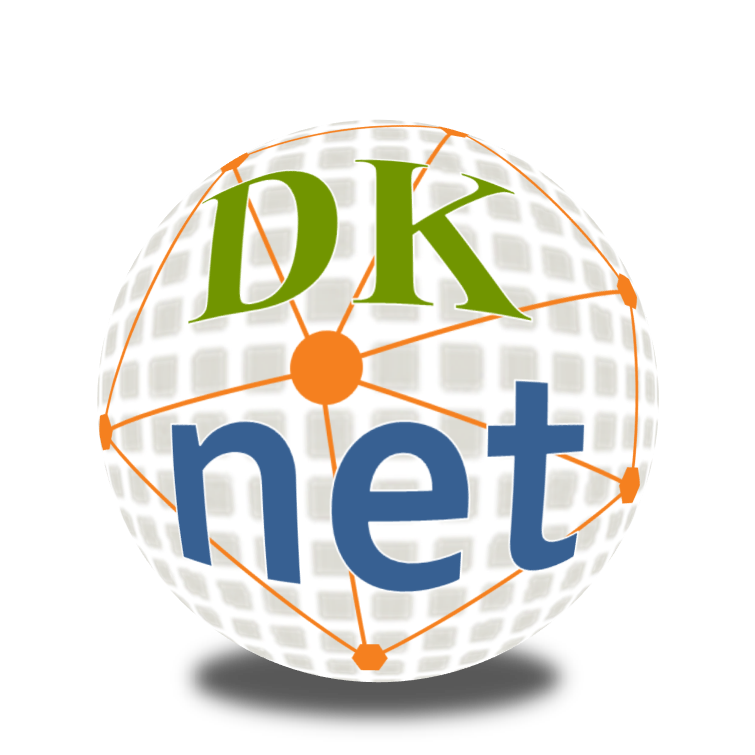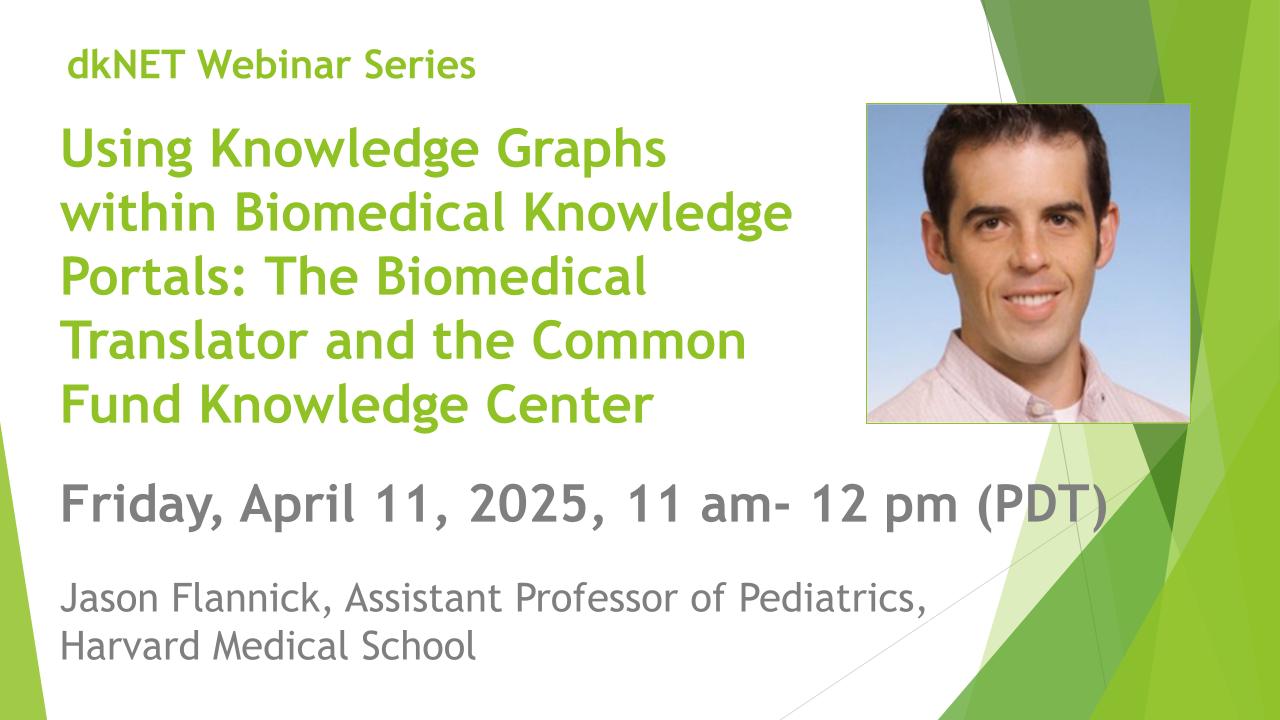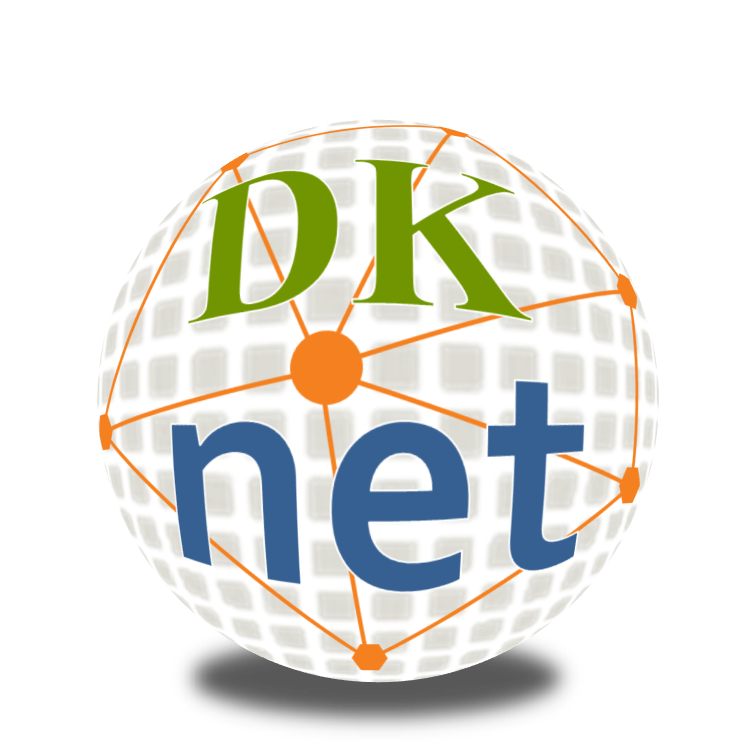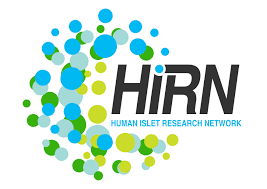Leaving Community
Are you sure you want to leave this community? Leaving the community will revoke any permissions you have been granted in this community.
dkNET community events and announcements in March, 2024
Dear dkNET Community,
dkNET provides updates on activities of interest to the NIDDK-supported community. You could keep up to date on these activities through our Twitter feed @dkNET_info, through our Community Calendar, or through dkNET e-mail list. If you have an event or funding opportunities you'd like to advertise, please contact us info_at_dknet.org.
dkNET News
- Upcoming webinars:
- The Multi-Omic Response to Exercise Training Across Rat Tissues: Data Dissemination Through the MoTrPAC Data Hub, presented by Dr. Malene Lindholm on Friday, March 8, 2024, 11 am - 12 pm PT
- Tabula Sapiens, presented by Dr. Angela Oliveira Pisco on Friday, March 22, 2024, 11 am - 12 pm PT
- Recording and slides are available:
- An Encyclopedia of The Adipose Tissue Secretome to Identify Mediators of Health and Disease, presented by Dr. Paul Cohen on Friday, February 9, 2024: Recording; Slides.
- The Collaborative Microbial Metabolite Center (CMMC)– Democratizing Mechanistic and Functional Interpretation of Microbial Metabolites, presented by Dr. Peter Dorrestein on Friday, February 23, 2024: Recording; Slides.
Mar. 07, 2024
Oral abstract submission deadline: Metabolomics 2024 (20th Annual Conference of the Metabolomics Society)
The Metabolomics Society is excited to welcome you to Metabolomics 2024. We want to see you in Osaka in June 16-20, 2024! Registration and Abstract Submission will open in January. The deadline to submit an oral abstract is March 7.
More information: https://www.metabolomics2024.org/
Mar. 08, 2024
dkNET Webinar "The Multi-Omic Response to Exercise Training Across Rat Tissues: Data Dissemination Through the MoTrPAC Data Hub"
Join dkNET Webinar on Friday, March, 2024, 11 am - 12 pm PT
Presenter: Malene Lindholm, PhD, Instructor, Department of Medic ine, Stanford University
Abstract
The Molecular Transducers of Physical Activity Consortium (MoTrPAC) aims to map the molecular responses to exercise and training to elucidate how exercise improves health and prevents disease. The first MoTrPAC data provides an extensive temporal map of the dynamic multi-omic response to endurance training ac ross multiple rat tissues. All results can be viewed, interrogated, and downloaded in a user-friendly, publicly accessible data portal (https://motrpac-data.org). The MoTrPAC data co mpendium includes transcriptomics, proteomics, metabolomics, phosphoproteomics, acetylproteomics, ubiquitylproteomics, DNA methylation, chromatin accessibility, and multiplexed immunoassay data. This compilation constitutes of 211 datasets across 19 tissues, 25 molecular assays, and 4 training time points in adult male and female rats. Over 35,000 analytes were found to be differentially regulated in response to endurance training, with many displaying sexual dimorphism. We observed a male-specific recruitment of immune cells to adipose tissues and an anticorrelated transcriptional response in the adrenal gland related to the stress response. Temporal multi-omic and multi-tissue integration demonstrated similar temporal response s in the heart and skeletal muscle, reflecting a concerted adaptation of mitochondrial biogenesis and metabolism. Integrative multi-omic network analysis revealed connections between the heat shock-mediated stress response and mitochondrial biogenesis. Training increased phospholipids and decreased triacylglycerols in the liver, and there were extensive changes to mitochondrial protein acetylation. Many changes were relevant for human health conditions, such as non-alcoholic fatty liver disease, inflammatory bowel disease, cardiovascular wellness, and tissue damage and repair. Altogether, this MoTrPAC resource provides an unprecedented view of the effects of exercise across an organism, revealing mechanistic details of how exercise impacts mammalian health. The MoTrPAC data hub is the primary online resource to disseminate this large-scale multi-omics data.
The top 3 questions that the MoTrPAC resource can answer:
1. What is the multi-omic response to endurance exercise across different tissues?
2. What are the top signaling pathways affected in response to exercise and do they differ between males and females?
3. How can the MoTrPAC data hub be utilized to interrogate all the MoTrPAC findings?
More information: https://dknet.org/about/blog/2721
Mar. 12, 2024
Novo Nordisk Foundation Center for Basic Metabolic Research (CBMR) Metabolic Day
On March 12, 2024, Metabolism Day will bring together researchers within the field of metabolism to discuss the latest science in cardio metabolic diseases and energy control. It is hosted and organized by the Novo Nordisk Foundation Center for Basic Metabolic Research (CBMR) at the University of Copenhagen.
Location: Copenhagen, Denmark
More information: https://cbmr.ku.dk /events/metabolism-day-2024/
Mar. 15, 2024
Abstract Submission Due: European Islet Study Group (EISG) meeting 2024
European Islet Study Group (EISG) meeting has been organized almost every year since 1991. After the 2023 meeting in Vancouver, the EISG will return to Europe when the meeting will be organized in Helsinki, Finland, June 18-20, 2024. The meeting program will highlight important scientific developments of all aspects of pancreatic islet biology. The conference will be held in the beautiful Hanasaari congress hotel located on a small island in the immediate vicinity of Helsinki.
Location: Helsinki, Finland
More information: https://www.helsinki.fi/en/conferences/eisg-helsinki-2024
Mar. 17-19, 2024
The NIH-CZI Junior Investigators Atlas Builders Meeting: Cellular & Molecular Human Atlases in Health & Diseases
The NIH-CZI Junior Investigators Atlas Builders Meeting will be held March 17-19, 2024 at 6001 Executive Boulevard, Rockville, MD and virtually. The deadline to register is February 9, 2024.
This 2-day meeting will bring together biologists, physician scientists, computational biologists, and other computational experts in the early stages of their careers from the Participant Engagement and Cancer Genome Sequencing (PE-CGS) Network, Human Tumor Atlas Network (HTAN), The Human BioMolecular Atlas Program (HuBMAP), Kidney Precision Medicine Project (KPMP), GenitoUrinary Development Molecular Anatomy Project (GUDMAP), Cellular Senescence Network (SenNet), Brain Research through Advancing Innovative Neurotechnologies (BRAIN) Initiative - Cell Census Network (BICCN), Human Islet Research Network (HIRN) and Chan Zuckerberg Initiative (CZI) Seed Network to work towards building atlases of tissue organization at an unprecedented resolution for answering fund amental questions in human health and disease.
For the purposes of this meeting, a 'junior investigator' is defined as a graduate student, postdoc, staff scientist, or early-career faculty.
The meeting will include sessions on specific scientific topics, career development, and networking sessions as well as several presentations by plenary speakers.
For further information or questions about the meeting program, contact Andreas Bueckle, Ph.D. at abueckle@iu.edu
Location: North Bethesda, MD, USA
More information: https://events.cancer.gov/nci/juniorinvestigato rsatlasbuilders
Mar. 18-19, 2024
NIDDK Preparing for Kidney Precision Medicine Clinical Trials Workshop
To gain a better understanding of the kidney patient therapeutic journey and to define candidate indicators for precision medicine pathway, target and trial readiness. This workshop will identify kidney precision medicine clinical trial barrier and potential solutions and to identify concepts relative to advancing precision medicine clinical trials not yet considered.
Location: Bethesda, MD, USA
More information:https://www.niddk.nih.gov/news/meetings-workshops/2024/preparing-for -kidney-precision-medicine-clinical-trials-workshop
Mar. 18-21, 2024
Keystone Symposia: Immunometabolism: From Mechanisms to Pathways to Therapies
This will be a unique conference covering a collection of topics from the fundamentals of immunometabolism, which are still being uncovered, to how these fundamentals apply to various disease states, notably in infection, inflammation, obesity and cancer. Topics will reflect excitement emerging directions in the field and innovative recent findings that will stimulate much discussion, including:
1) new techniques to address immunometabolism in vitro and in vivo where there is a pressing need in the field;
2) how microbes contend with immunometabolic changes both in the microbiota and during infection;
3) new findings on macrophage metabolism particularly around newer metabolites that continue to be explored;
4) how mitochondrial metabolism links to changes in other organelles, especially the nucleus;
5) how the metabolic environment in tumor s is critical for anti-tumor immunity and finally the translational potential for immunometabolism in immune and inflammatory diseases.
A key overall goal will be to gain a more integrated understanding of how immunometabolism impacts on health and disease, with the aim of stimulating new an d unexpected approaches to address key questions in this most exciting aspect of immunology.
Location: County Kerry, Co. Kerry, Ireland
More information: https://www. keystonesymposia.org/conferences/conference-listing/meeting?eventid=7016
Join dkNET Webinar on Friday, March 22, 2024, 11 am - 12 pm PT
Presenter: Angela Oliveira Pisco, PhD
More information: https://dknet.org/about/webinar
Mar. 29, 2024
Abstract Submission Due: NMRI Annual Workshop 2024
More than 700 researchers have participated in NMRI workshop s in the past decade, and approximately 100+ are active members. The success of the NMRI, a network that is “owned” by its members and supported by the NIDDK, begins with the dedication of senior investigators who mentor and serve as role models for junior investigators. The participation of active members and the recruitment of new members is a primary reason for the Network’s success in the past and the reason for confidence that it will continue to grow in the future. Workshop dates: April 17-19,2024.
Location: Bethesda, MD, USA
More information: https://www.niddk.nih.gov/news/meetings-workshops /2024/nmri-annual-workshop-2024
Mar. 11, 2024
NIH Funding Opportunity Letter of Intent Due: Cardiovascular Repository – Type 1 Diabetes (CARE-T1D) Consortium (U01 Clinical Trial Not Allowed)
Cardiovascular complications are the leading cause of death for individuals with type 1 diabetes (T1D) and significantly shorten their lives. Cardiovascular disease (CVD) progression in people with T1D differs from that observed in people with type 2 diabetes (T2D) and residual increase d risk of CVD remains after treatment of standard risk factors, such as hyperglycemia, hypertension, and hyperlipidemia. The NIH Cardiovascular Repository for T1D (CaRe-T1D) was initiated with the goal of establishing a biorepository of human CV tissue and a scientific consortium to advance and support discovery and mechanistic research that increase the understanding of CVD in T1D. The first phase launched the biorepository and now in the second phase investigative teams will be added to form a consortium with the biorepository serving as the Coordinating Center (CC). CaRe-T1D is currently collecting hearts, kidneys, carotid and peripheral arteries, and blood from organ donors with T1D, T2D and without diabetes. The goal of this NOFO is to attract investigative teams with complementary interests and expertise who will leverage these resources through individual and collaborative studies to advance our knowledge of the pathogenesis of CVD in T1D. Application Due Date: April 11, 2024.
More information: https://grants.nih.gov/grants/guide/rfa-files/rfa-dk-23-021.html
Mar. 15, 2024
Response Due Date: NIH Request for Information (RFI): Inviting Comments on the NIH Strategic Plan for Data Science 2023-2028
The purpose of this Request for Information (RFI) is to solicit public comments on the updated NIH Strategic Plan for Data Science, 2023- 2028. The NIH is publishing this Notice to solicit input on topics under consideration for the strategic plan from its stakeholders, including member s of the scientific community, academic institutions, the private sector, health professionals, professional societies, advocacy groups, and patient communities, as well as other interested members of the public. The updated Strategic Plan for Data Science sets a bold vision for the future, one in which data generated in the course of care of individuals and data generated from biomedical and basic research become powerful inputs that enhance our understanding of fundamental biology and enable the development of new clinical treatments and diagnostic technologies. This updated plan builds on accomplishments from the initial NIH Strategic Plan for Data Science and will prepare NIH to face the acceleration of sophisticated new technologies and address the rapid rise in the quantity and diversity of data. The updated Strategic Plan supports the NIH Policy for Data Management and Sharing and embraces data-driven discovery as a powerful tool to elucidate biological processes and better characterize the health and health consequences of all people. The plan also fosters ethical use of new methodologies arising from artificial intelligence (AI) and machine learning (ML).
More information: https://datascience.nih.gov/rfi-strategic-plan
Mar. 15, 2024
Funding Opportunity Application Due: ATLAS-D2K Opportunity Pool 2024
The ATLAS-D2K Opportunity Pool initiative aims to address gaps or catalyze new partnerships in kidney and genitourinary research. We invite applications for "glue grant" funding from investigators currently engage d in significant non-GUDMAP/RBK research projects, as detailed in the Funding Opportunity Announcement (FOA). Applications are due Monday, March 15t h, 2024.
More information: https://www.atlas-d2k.org/collaboration/op-pool/202 4/
Mar. 19, 2024
Funding Opportunity Application Due: George M. O’Brien Kidney Resource Alliance Opportunity Pool Program
The George M. O’Brien Kidney Resource Alliance (OKRA) is excited to announce the first offering of our OKRA Opportunity Pool Program. This program will support both small catalyst awards (starting at $5,000) and large pilot grants (up to a maximum of $75,000 total costs) addressing scientific and technological gaps in kidney research and promoting new collabo rations. Projects must either: 1) utilize existing O’Brien Kidney National Resource Center resources or 2) develop and add a novel tool or resource to the existing array of OKRA resources. All are welcome to apply and priorities are detailed in the link provided below.
More information: https://www.pkd-rrc.org/wp-content/uploads/2024/01/ OKRA-Round-1-Opportunity-Pool-Announcement.pdf
Mar. 20, 2024
NIH Funding Opportunity Application Due: Human Islet Research Network - Consortium on Modeling Autoimmune Diabetes (HIRN-CMAD) (UG3/UH3 Clinic al Trial Not Allowed)
This Notice of Funding Opportunity (NOFO) welcomes applications for the Consortium on Modeling Autoimmune Diabetes (CMAD) that supports the development of in vitro and in vivo models of type 1 diabetes (T1D) to enable studies of human T1D pathophysiology and to serve as platforms for preclinical assessments of new T1D interventions. CMAD is part of the Human Islet Research Network (HIRN).
More information: https://dknet.org/about/dknetnews/2673
Mar. 31, 2024
Funding Opportunity Submission Due: 2024 American Thyroid Associati on Research Grant
The American Thyroid Association (ATA) is pleased to announce the availability of funds from ThyCa, Bite Me Cancer and the ATA to support new investigator-initiated research projects in the areas of thyroid function, thyroid disease, and thyroid cancer. Topics may include, but are not limited to, Disorders of Thyroid Function, Iodine Uptake and Metabolism, Thyroid Autoimmunity, Thyroid Cancer, Thyroid Hormone Effect and Metabolism, Thyroid Hormone in Development and the Brain, Health Disparities, Health Services Research and Health Economics and Outcomes, Thyroid Imaging, Thyroid Nodules and Goiter, Thyroid and Pregnancy. Research awards are targeted for funding of new investigators, US or international, and intended to assist in obtaining preliminary data for submission of a m ore substantial application (e.g. to the National Institutes of Health (NIH). Research grants, up to $25,000 annually, will be awarded for up to two year terms. Eligible investigators interested i n applying should review the information below and submit a proposal by March 31, 2024 at 11:59 PM PST.
More information: https://app.smarterselect.com/programs/94413-American-Thyroid-Associa tion





